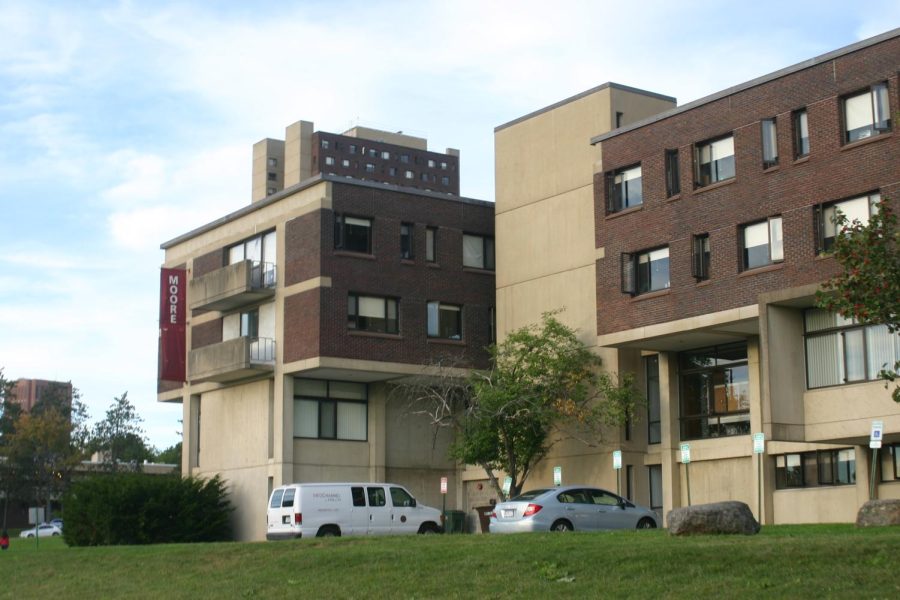It is no secret that the University of Massachusetts has been experiencing a housing crisis. Students experienced the height of this issue during room selection and move-in for the Fall 2022 semester. With the number of new students attending increasing each year, many are worried about the state of housing on campus in the coming years. The university has provided several lackluster solutions, and it’s time for the administration to look to schools that have found creative ways to deal with overcrowding in on-campus housing.
Recently, UMass has converted common rooms and lounges into “quads” which are dorm rooms that each house four people instead of the usual two. The university also uses economy triples, or standard-sized dorm rooms that house three people in a space meant for two. Additionally, single rooms have been limited to Residential Assistants and students who require them due to disability. Yet there is still not enough room to house all of the students residing on campus. 120 transfer students are currently being housed in the Hadley Econo Lodge, three miles away from campus.
Housing students in nearby hotels is not a new idea. In fact, it is one that has been implemented in multiple universities across the nation. Florida Atlantic University, for example, is currently housing more than 100 students in off-campus hotels. Similar to UMass, FAU will be offering special events at these hotels and shuttles that will transport students to and from campus. The University of Utah had a similar solution, housing students in their on-campus hotel. This raises the question: why isn’t UMass doing the same? While schools like FAU don’t have on-campus hotels to house students, UMass does. In fact, with 116 rooms, Hotel UMass would provide more than enough space to house students in the heart of campus instead of three miles away.
This is not the only solution that the University of Utah has come up with. With a large number of alumni living in the area, the university is offering $5,000 to previous students who will house current students for a semester. This year will be a trial for the innovative program, but the university is hoping to place even more students in their “Home Away from Home” next Fall.
The University of Cincinnati has also devised some creative ways to deal with its housing issues. Managing properties next to campus, the university encourages students to live in these off-campus apartments. Additionally, the university is offering incentive packages to students who choose to rent privately-owned houses and apartments near campus. Students who choose to live there will receive a $2,500 financial award and a free parking pass.
These fixes may work in the short term, but it is increasingly clear that long-term housing solutions are needed at UMass as well as colleges across the country. UMass started construction on new undergraduate, graduate, and family housing on Massachusetts Ave. These buildings, however, will not meet demand, offering a measly 600 beds for undergraduate students.
The University of California Santa Barbara, however, has planned new housing to meet the demand for many years to come. The building, dubbed “Dormzilla” by current students, offers nearly 5,000 beds for residents. The 11-story building has sparked controversy across the internet due to its small rooms and lack of natural light. Though not ideal, UCSB has found a way to meet the growing housing demand.
With only around 13,000 students living on campus, UMass does not need its own personal “Dormzilla” but should be taking notes on how other campuses plan on solving these problems. The quick fixes that have been put in place across campus are not sustainable and will fail to meet the growing demand in the coming years. This nationwide problem is ongoing and has yet to be fully solved. Cooperation between colleges, however, is the answer. We can develop a working solution much quicker by learning from one another.
Zach Leach can be reached at [email protected] and followed on Twitter at @ZachLeach12.





















Logan • Sep 13, 2022 at 11:39 am
PHOOEY! Umass needs to get its act together.